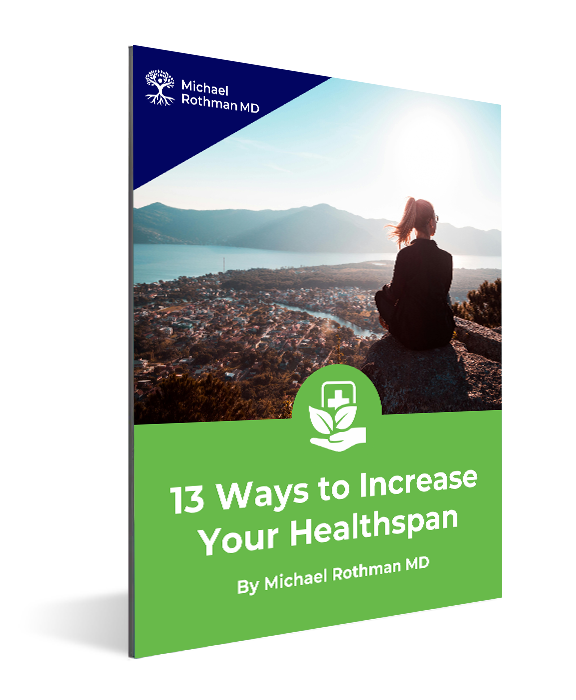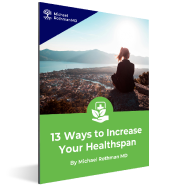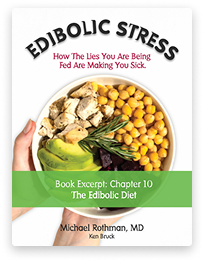Regardless of sex, race, income, religion, or political affiliation, a common denominator of all of us is the desire to look and feel youthful, and remain in good health. The beauty industry, estimating $100 Billion dollars in annual revenue worldwide, sells products promising to reverse the signs of aging. There are countless eating/exercising/mindfulness trends promoting that “THIS” is the secret to be healthy. But do these things ACTUALLY work? Are we wasting our hard-earned money on “just hype”?
In this blog, I want to review the process of “aging” in our bodies: what happens at a cellular level as we grow older. Next, we can review the typical anti-aging processes our body performs daily. And finally, we can discuss what we can do to maximize our body’s natural processes and what else we can do to supplement these daily activities.
Senescence
If you were asked to describe aging, you would probably reply in terms of how you look or feel. However, biologically, aging or senescence is best described in a few ways:
- “The time-related deterioration of the physiological functions necessary for survival and reproduction.”
- It is the loss of a cell’s power of division and growth.
What causes senescence?
I’m sure you’ve heard of the term “wear and tear”. Senescence is the accumulated “wear and tear” of the body from a multitude of lifestyle factors such as:
- Diet
- Stress
- Sleep-Wake cycles
- Rest/Exercise
- Exposure to environmental toxins
- Drugs/smoking/alcohol
There is also a bodily process called Quasi-Programmed Aging responsible for senescence. Each cell in your body can only divide and proliferate a limited number of times (Hayflick limit). After a particular cell exceeds the Hayflick limit, it can no longer divide, but if stimulated by “growth factors” such as the above it will instead become hyper-functional (excessive activity), hypertrophic (enlargement of the cell) and senescent. The more “wear and tear” the faster the Hayflick limit is reached.
Senescence can lead to aging and chronic illness
Senescent Associated Secretory Phenotype (SASP) describes the ability of senescent cells to express and secrete a “witches brew” of harmful substances including cytokines, chemokines and proteases. The senescent cells are like “Zombies” neither truly dead or alive. But they do create other zombie cells via the SASP. And zombie cells are responsible for illnesses such as Alzheimer’s disease, arthritis, and other age-related diseases such as cancer.

Start your journey to true well-being:
There are 4 outcomes of a cell in life:
- Growth Factors + dividing cell = proliferation (rapid production of new cells)
- No growth factors + dividing cell = cell death (apoptosis)
- No growth factors + nondividing cell = quiescence (inactivity, dormancy)
- Growth Factors + nondividing cell = ZOMBIE CELL!!!
Can We Reduce Production of zombie cells?
YES! A process called autophagy is where the cell breaks down and destroys old, damaged, and abnormal substances.
How do we increase autophagy and reduce the production of zombie cells?
- By reducing growth factors. This is a great blog on how to reduce growth factors that can lead to the production of zombie cells.
- Exercise. Most people make a lot of common mistakes when it comes to exercise. Here is a great read to help ensure you are helping, not hurting your body.
- Intermittent Fasting may be the most effective practice any person could do to remain healthy or reverse damage done within the body.
- If you need supplemental help mimicking the health benefits of fasting, certain medications can help.
- Reduce mTOR (mechanistic target of rapamycin)! mTOR is a protein that is a major regulator of cell growth. It controls most anabolic and catabolic processes within our body in response to signals such as insulin.
Simply put, every time you eat your body releases insulin. Insulin stimulates the process that regulates cell growth in our bodies. The cells that grow can be healthy cells or zombie cells. The type of cell can be affected heavily by our lifestyle factors such as diet, exercise, stress, environmental toxins like mold, etc. Too many negative growth factors lead to SASP where our cells become zombie cells and create even more zombie cells. Too many of these cells can lead to deadly diseases and illnesses that can be impossible to recover from. By intermittent fasting or mimicking fasting, it increases autophagy and allows our body to maintain an environment where we reduce mTOR.
Aging is a personal journey. Each person has a different lifestyle, and maintains various diets, and some have genetic predispositions to sickness when in contact with environmental toxins. We’ve all been exposed to different growth factors in frequency and severity. If you are interested in a metabolically directed approach to aging and maintaining your health, I urge you to schedule a consultation for a personalized, holistic plan.
Ready to Take Control of Your Health?
If you’re ready to prioritize your health and are seeking effective, metabolically directed treatments, contact us online or call (732) 268-7663 for a consultation with Dr. Rothman.
References:
Gilbert, Scott. (2000) Developmental Biology 6th Edition. Sunderland (MA): Sinaur Associates.
Chaib, S., Tchkonia, T. & Kirkland, J.L. Cellular senescence and senolytics: the path to the clinic. Nat Med 28, 1556–1568 (2022). https://doi.org/10.1038/s41591-022-01923-y
Farr JN et al. Targeting cellular senescence prevents age-related bone loss in mice. Nat. Med 23, 1072–1079 (2017). [PMC free article] [PubMed] [Google Scholar]
Lagnado A et al. Neutrophils induce paracrine telomere dysfunction and senescence in ROS-dependent manner. EMBO J. 40, e106048 (2021). [PMC free article] [PubMed] [Google Scholar]
Hayflick L & Moorhead PS The serial cultivation of human diploid cell strains. Exp. Cell. Res 25, 585–621 (1961). [PubMed] [Google Scholar]
Yousefzadeh MJ et al. An aged immune system drives senescence and ageing of solid organs. Nature 594, 100–105 (2021). [PMC free article] [PubMed] [Google Scholar]
Acosta JC et al. A complex secretory program orchestrated by the inflammasome controls paracrine senescence. Nat. Cell Biol 15, 978–990 (2013). [PMC free article] [PubMed] [Google Scholar]
Hernandez-Segura A, Nehme J & Demaria M Hallmarks of cellular senescence. Trends Cell Biol. 28, 436–453 (2018). [PubMed] [Google Scholar]
Wiley CD & Campisi J From ancient pathways to aging cells—connecting metabolism and cellular senescence. Cell Metab. 23, 1013–1021 (2016). [PMC free article] [PubMed] [Google Scholar]
Rodier F et al. Persistent DNA damage signalling triggers senescence-associated inflammatory cytokine secretion. Nat. Cell Biol 11, 973–979 (2009). [PMC free article] [PubMed] [Google Scholar]
Prata L, Ovsyannikova IG, Tchkonia T & Kirkland JL Senescent cell clearance by the immune system: emerging therapeutic opportunities. Semin. Immunol 40, 101275 (2018). [PMC free article] [PubMed] [Google Scholar]
Demaria M et al. An essential role for senescent cells in optimal wound healing through secretion of PDGF-AA. Dev. Cell 31, 722–733 (2014). [PMC free article] [PubMed] [Google Scholar]
Stokes KL et al. Natural killer cells limit the clearance of senescent lung adenocarcinoma cells. Oncogenesis 8, 24 (2019). [PMC free article] [PubMed] [Google Scholar]
Franceschi C & Campisi J Chronic inflammation (inflammaging) and its potential contribution to age-associated diseases. J. Gerontol. A Biol. Sci. Med. Sci 69, S4–S9 (2014). [PubMed] [Google Scholar]
Johmura Y et al. Senolysis by glutaminolysis inhibition ameliorates various age-associated disorders. Science371, 265–270 (2021). [PubMed] [Google Scholar]
Lamming DW, Ye L, Sabatini DM & Baur JA Rapalogs and mTOR inhibitors as anti-aging therapeutics. J. Clin. Invest 123, 980–989 (2013). [PMC free article] [PubMed] [Google Scholar]
Moiseeva O et al. Metformin inhibits the senescence-associated secretory phenotype by interfering with IKK/NF-κB activation. Aging Cell 12, 489–498 (2013). [PubMed] [Google Scholar]
Harrison DE et al. Rapamycin fed late in life extends lifespan in genetically heterogeneous mice. Nature 460, 392–395 (2009). [PMC free article] [PubMed] [Google Scholar]
Kulkarni AS, Gubbi S & Barzilai N Benefits of metformin in attenuating the hallmarks of aging. Cell Metab. 32, 15–30 (2020). [PMC free article] [PubMed] [Google Scholar]
Mannick JB et al. TORC1 inhibition enhances immune function and reduces infections in the elderly. Sci. Transl. Med 10, eaaq1564 (2018). [PubMed] [Google Scholar]
Bitto A et al. Transient rapamycin treatment can increase lifespan and healthspan in middle-aged mice. Elife5, e16351 (2016). [PMC free article] [PubMed] [Google Scholar]













